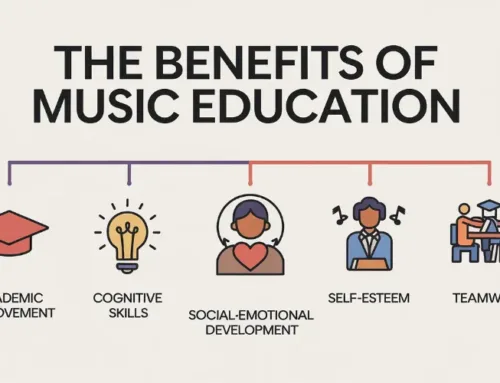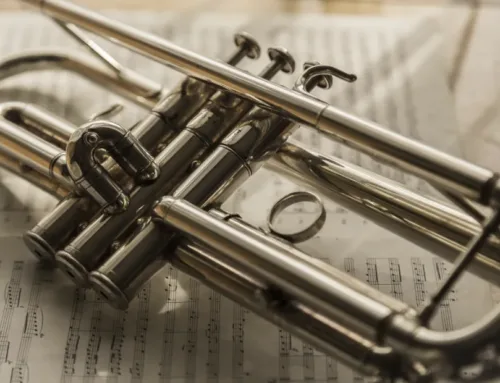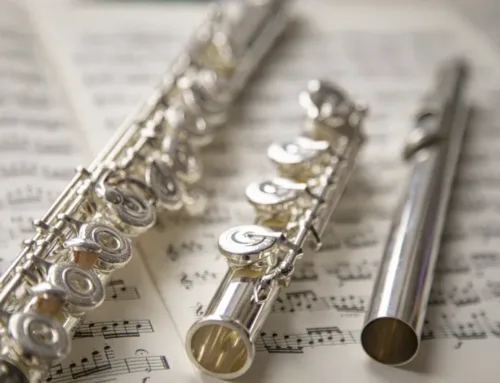As a musician, you know that practice is essential for growth and mastery of your instrument. However, not all practice sessions are created equal. Ineffective or unfocused practice can lead to frustration, plateaus, and even burnout. On the other hand, strategic and deliberate practice can help you make the most of your time and achieve your musical goals more efficiently. In this article, we’ll dive into proven techniques and strategies for productive music practice that will help you unlock your full potential as a musician

Setting Clear Practice Goals
One of the most important elements of effective practice is having a clear sense of direction. Before each practice session, take a few minutes to set specific, measurable, achievable, relevant, and time-bound (SMART) goals. Here’s a step-by-step process for setting SMART goals:
- Specific: Clearly define what you want to accomplish, such as “Learn measures 32-40 of Beethoven’s Moonlight Sonata.”
- Measurable: Decide how you will track your progress, such as “Play the passage at 60 bpm with no mistakes.”
- Achievable: Ensure your goal is realistic given your current skill level and available practice time.
- Relevant: Make sure your goal aligns with your long-term musical aspirations.
- Time-bound: Set a deadline for achieving your goal, such as “By the end of the week.”
These goals can be short-term, such as mastering a particular section of a piece, or long-term, like preparing for a performance or audition. By aligning your practice goals with your overall musical aspirations, you’ll stay motivated and focused.
Breaking Down Complex Pieces
When faced with a challenging piece of music, it can be overwhelming to know where to start. One effective strategy is to break the piece down into smaller, more manageable sections or phrases.
- Find the most challenging spots and prioritize those in your practice.
- Divide the piece into logical sections, such as by phrase, measure, or line.
- Practice each section separately, focusing on mastering the technical and musical elements.
- Gradually combine the sections, ensuring smooth transitions between them.
- Continue this process until you can play the entire piece seamlessly.
Techniques for Efficient Practice
To make the most of your practice time, try incorporating these proven techniques:
Chunking
Chunking involves breaking a piece into smaller, logical sections and practicing each one separately. This approach helps you focus on specific technical or musical challenges and allows you to progress more quickly.
Slow Practice
Practicing at a slower tempo can help you develop accuracy, control, and muscle memory. As you become more comfortable with a piece, gradually increase the tempo until you reach the desired speed.
Repetition with Variation
While repetition is necessary for mastery, mindless repetition can lead to boredom and stagnation. Try varying your repetitions by changing the rhythm, articulation, or dynamics. This keeps your mind engaged and helps you develop a deeper understanding of the music.
Mental Practice
Not all practice requires your instrument. Engage in mental practice by studying the score, visualizing yourself playing, and hearing the music in your mind. Here are some specific mental practice techniques:
– Score study: Analyze the structure, harmony, and patterns in the music. Make note of challenging passages and develop strategies for tackling them.
– Visualization: Close your eyes and imagine yourself playing the piece flawlessly. Focus on the physical movements, fingerings, and musical expression.
– Audiation: Hear the music in your mind, paying attention to every detail of the melody, harmony, and rhythm. Sing or hum along to internalize the music.
Mental practice can help you solidify your understanding of the piece and find areas that need extra attention. It’s also a valuable tool when you don’t have access to your instrument.
Deliberate Practice Strategies
To truly maximize your practice efficiency, incorporate deliberate practice strategies:
- Focus on specific skills or techniques during each practice session, rather than just playing through pieces.
- Push yourself outside your comfort zone by tackling challenging passages or exploring new styles.
- Seek feedback and guidance from teachers, mentors, or more advanced musicians to help you find areas for improvement.

The Role of Self-Evaluation
Self-evaluation is a crucial part of effective practice. Regularly record yourself playing and listen back with a critical ear. Identify your strengths and weaknesses and adjust your practice strategies accordingly. Use feedback from teachers, peers, and your own observations to continually refine your approach.
Staying Motivated
Maintaining motivation is key to consistent and productive practice. Set achievable milestones along the way to your larger goals and celebrate your progress. Mix up your repertoire and practice activities to avoid boredom and consider collaborating with other musicians for added inspiration and accountability.
Creating a Practice Environment
Consistency is crucial for making steady progress. Schedule regular practice time into your daily or weekly routine and treat it as a non-negotiable commitment. Track your progress using a practice journal or app and use accountability strategies like setting deadlines or practicing with others to stay on track.

Developing a Consistent Practice Habit
Consistency is crucial for making steady progress. Schedule regular practice time into your daily or weekly routine and treat it as a non-negotiable commitment. Track your progress using a practice journal or app and use accountability strategies like setting deadlines or practicing with others to stay on track.
Further Reading and Resources
To dive deeper into effective practice strategies, check out these recommended resources:
– “The Musician’s Way: A Guide to Practice, Performance, and Wellness” by Gerald Klickstein
– “Effortless Mastery: Liberating the Master Musician Within” by Kenny Werner
– “The Practice Revolution: Getting Great Results from the Six Days Between Music Lessons” by Philip Johnston
These books offer added insights, techniques, and philosophies to help you perfect your practice and achieve your musical goals.
Conclusion
Effective music practice is a skill that can be developed and refined over time. By setting clear goals, breaking down complex pieces, using efficient practice techniques, and incorporating deliberate practice strategies, you can make the most of your practice sessions and achieve your musical goals more quickly.
At Practicing Musician, we're committed to supporting musicians of all levels in their practice journeys. Our comprehensive online curriculum, progress tracking tools, and expert feedback through micro tutoring sessions can help you perfect your practice and unlock your full potential. Start implementing these proven practice strategies today and watch your musical skills soar.







Leave A Comment
You must be logged in to post a comment.